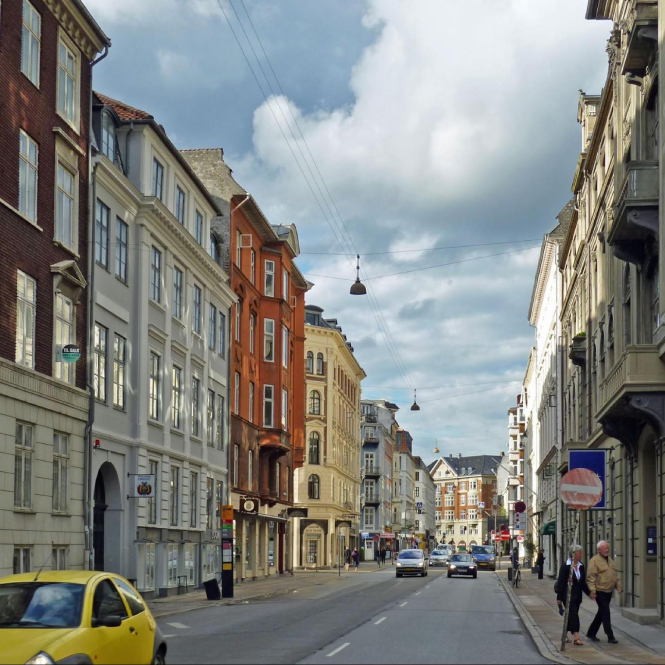
Blog ›
Germany


A Soft-landing for Digital Nomad in Germany Part 1
Digital nomads are remote workers who enjoy traveling and search for productive and fascinating workplaces. They traverse the digital landscape, seeking locations that offer a perfect blend of connectivity, infrastructure, and quality of life. One of the best parts of this way of working, especially for younger people, is the ability to live anywhere and experience life as a local rather than as a tourist. One of the best places for English-speaking digital nomads is Germany.
Infrastructure and Transportation


It’s not just travel within Germany that is super-easy, but international travel is easy too. Because Germany is centrally located, it’s not difficult to travel from Germany to the rest of Europe.
Germany is a very easy country to live in. It’s got an extensive public transportation system with efficient trains and buses, and all the big cities have subways and/or buses and trams. There are bike paths literally just about everywhere, even in cities, so you can stay in shape without going to the gym. Big cities have car-, scooter- or bike-sharing services too, so you can get by quite easily without a car and without even buying a bike if you don’t want to. At least to me, the greatest thing about German public transportation is the Deutschland ticket. Having the Deutschland ticket means that, for only 49 euros/month, you can take regional trains all over the country and all the rest of the public transportation in the whole country.
It’s not just travel within Germany that is super-easy, but international travel is easy too. Because Germany is centrally located, it’s not difficult to travel from Germany to the rest of Europe. Cheap flights and reasonably-priced ICE trains (the “fast” trains as opposed to the regional ones) mean that you can easily get away to Paris or Amsterdam for the weekend, for example. English-speaking digital nomads will also want to know that there are many people who speak excellent English here and most Germans are happy to practice their English with you. They are so happy to do this, however, that it can make it difficult to practice your German with them, so you really have to keep at it if you want to learn German. There are also many language schools and classes available if you want to increase your proficiency.
Thriving Digital Ecosystem:


Fast internet is absolutely everywhere and there are several reasonably priced pay-as-you go cell phone plans that operate in Germany, so access to data is never a problem.
Fast internet is absolutely everywhere and there are several reasonably priced pay-as-you go cell phone plans that operate in Germany, so access to data is never a problem. One other thing I forgot to mention: there are no roaming charges within the EU, so you don’t have to worry that your cell phone bill will go up if you leave the country for the weekend–another win for digital nomads! And when it comes to which company you’d like to be sending you your cell phone bill, in addition to the pay-as-you-go options mentioned above, you’ll also find all the big European players–T-Mobile, Vodafone, O2, etc.--as well.
As far as places to use your phone professionally are concerned, there are many coworking spaces (even in some of the smaller cities), cafes, and libraries which make it even easier to work remotely. Networking and working collaboratively are not difficult either, as cities like Berlin, Munich, and Hamburg are vibrant hubs of technology and creativity, having made themselves at home to numerous startups, tech companies, and coworking spaces. Berlin, in particular, has emerged as a hotspot for entrepreneurs and freelancers, offering a dynamic environment conducive to professional growth. Berlin is also less expensive than most people expect it to be. The presence of tech incubators, accelerators, and networking events further enriches the digital landscape, fostering a culture of innovation and collaboration.
Work-Life Balance:


One of the nicest things about living in Germany is the intense concern with work-life balance.
One of the nicest things about living in Germany is the intense concern with work-life balance. People are expected to take vacations and time off (they think you are weird if you don’t), and German workplaces are renowned for their generous vacation policies. Some companies enjoy 4-day workweeks, and everyone takes full advantage of the many opportunities for leisure and recreation. This approach is especially good for digital nomads, as it encourages them to embrace a work-life balance which can be hard to achieve in a culture in which people are expected to be reachable 24/7. Germany is a beautiful country as well as being full of all kinds of history, so digital nomads will never be bored, regardless of whether you prefer outdoor activities like hiking in the Bavarian Alps or more urban activities like exploring the bustling streets of Berlin. And if the environment is important to you, you’re in luck in Germany, as its commitment to environmental sustainability and green living aligns with the values of many digital nomads. This makes it very easy to live an environmentally sustainable lifestyle.
For digital nomads who are teaching students or working with clients in Asian countries, for example, Germany’s time zone is perfect, as its European location means that you don’t have to wake up in the middle of the night to teach or meet with clients. It also means that if you are working with students or clients in the Americas, you can work with them in the late afternoon and/or early evening, as there are plenty of work hours which overlap with that part of the world as well.
Even though the time zone here in Germany is perfect, figuring out how to schedule classes, client meetings, etc., with people in different time zones definitely infringes on digital nomads’ work-life balance, so some administrative help is a must. And since it’s not feasible for most digital nomads to travel with someone specifically to do these things, you need a system that you can set up and let it do the work for you. Enter Helppo Saas: our system can do almost all of your administrative tasks for you: scheduling, creating and sending invoices, managing payments, and finding students/clients. Once you’ve got it in place, rather than spending hours every week on administration, you could take that time and go exploring instead–which, after all, is the whole point of being a digital nomad, is it not?




